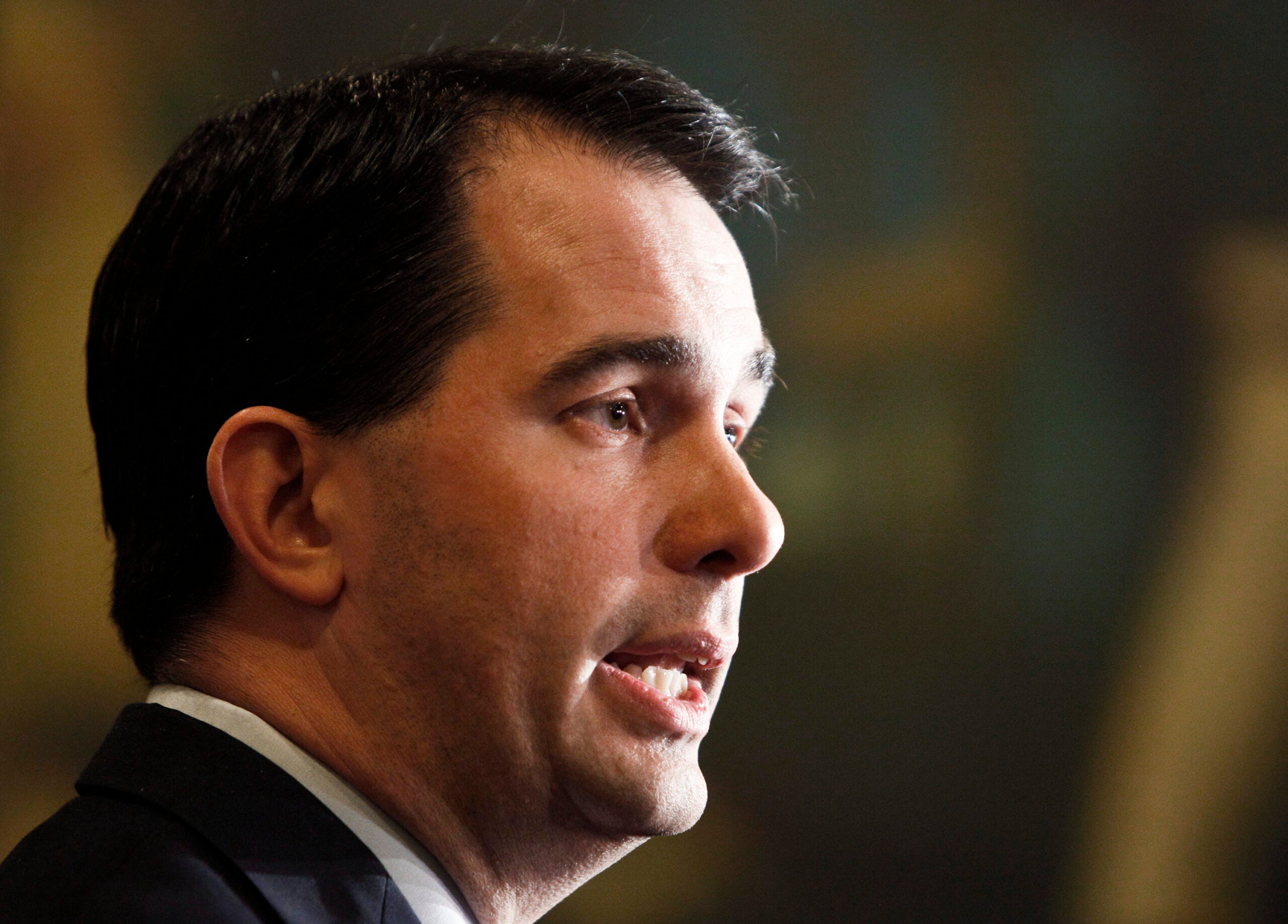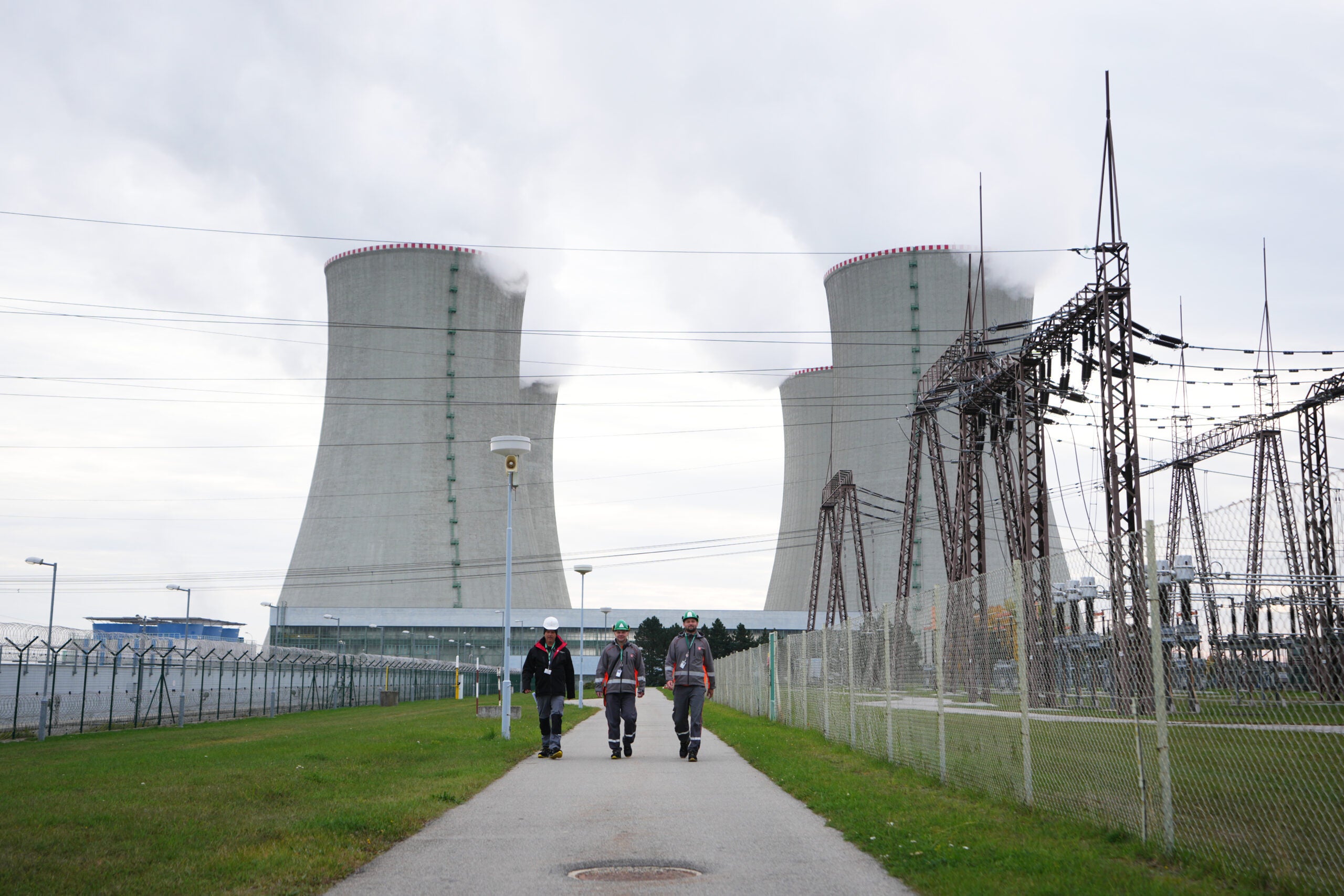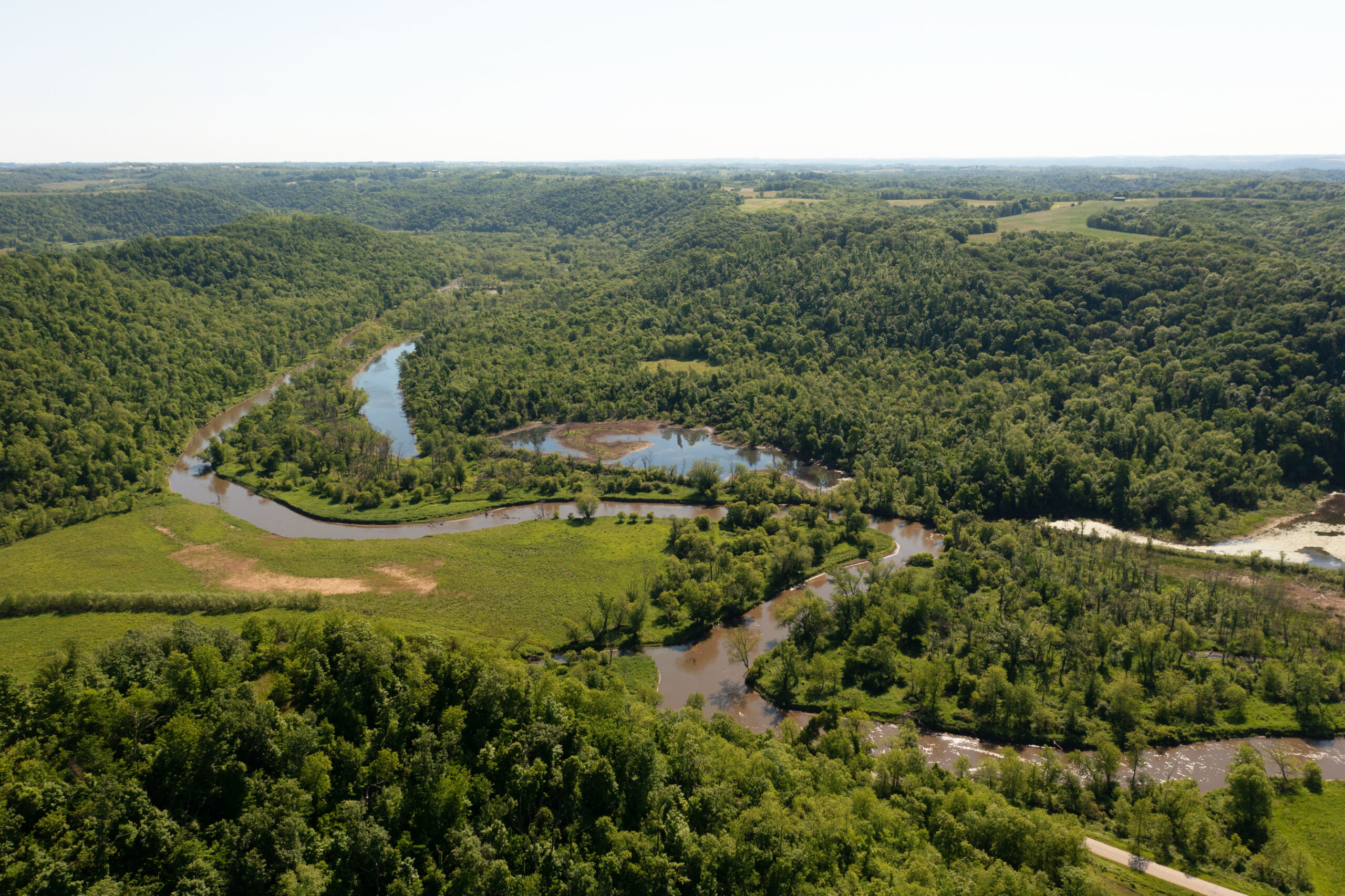Gov. Scott Walker unveiled a new $122 million child tax credit in his State of the State address at the Capitol on Wednesday.
The cut would give families $100 annually per child and is estimated to cost $122 million a year. The first year’s cost will be covered by a recently announced $137.5 million budget surplus, which resulted from increased tax collections, debt payment re-estimates, and a fund transfer.
“I’m calling on the Legislature to pass my plan so that by the time your kids begin school in the fall, you will have a check in the mailbox,” Walker said.
News with a little more humanity
WPR’s “Wisconsin Today” newsletter keeps you connected to the state you love without feeling overwhelmed. No paywall. No agenda. No corporate filter.
Democrats pushed back on the plan as a political move in an election year.
“Despite Gov. Walker’s frantic attempts to improve his public approval ratings in a tough election year, Wisconsin residents will not be fooled,” said Senate Minority Leader Jennifer Shilling, D-La Crosse.
Walker used the speech to highlight some of his proposals for the remainder of the legislative session, which is scheduled to end by May. Those proposals include initiatives related to health care, rural development, welfare and juvenile justice.
Health care
On Sunday, the governor called for the state to apply for a federal waiver to offer re-insurance in Wisconsin, a move that supporters say will stabilize the state’s Affordable Care Act marketplace and lower premiums for consumers.
“Washington has failed to act, so it is time for us to lead in Wisconsin,” he said in his address.
Walker has also proposed legislation that would bar insurers from denying coverage to people with pre-existing conditions. He’s also calling for the state to apply for a federal waiver to permanently continue SeniorCare, a program that provides help to seniors with prescription drug costs.
Rural development and schools
Before his speech Wednesday, the governor announced an initiative to provide $50 million annually for economic development projects in rural counties across Wisconsin.
The funds would be distributed by existing and new programs at the Wisconsin Economic Development Corp. New programs would need legislative approval.
Fifty-six of Wisconsin’s 72 counties would qualify for the grant, as they have a population density of less than 155 people per square mile.
The governor has also called for the Legislature to approve a $100-per-student increase in sparsity aid for students who live in low-population districts.
“Many of these schools have unique needs related to transportation and to the size of the district,” Walker said in his speech. “I want to ensure educational excellence everywhere. With that in mind, we have a plan that will increase sparsity aid and help out low revenue school districts.”
Welfare
Last week, the governor called a special session of the Legislature to take up a number of new proposals, sponsored by Rep. Robin Vos, R-Rochester, and Sen. Chris Kapenga, R-Delafield, relating to welfare programs in the state.
Those proposals would do things like create a mandatory photo ID for food stamp recipients, increase work requirements for people who receive food stamps, and implement drug testing for people who want to live in state-sponsored housing.
“Now, some will complain that our reforms are about making it harder to get government assistance,” Walker said. “The truth is, our reforms are about making it easier to get a job.”
Juvenile justice
The governor also highlighted a plan to reorganize the state’s juvenile justice system.
Under the proposal, juvenile offenders would be moved from the Lincoln Hills and Copper Lake youth prisons to six smaller facilities across the state.
Lincoln Hills and Copper Lake would be converted into an adult facility.
“Let’s work with the counties to pass this plan quickly so we can move forward with real reform,” Walker said.
The governor also used the speech to tout the state’s 3-percent unemployment rate, the lowest the state has seen since 1999, the $636 million increase to K-12 education funding in the last state budget, and the elimination of the state’s portion of the property tax.
“I am proud that we are getting positive things done for the people of Wisconsin,” Walker said. “But we’re not done yet.”
Democrats push back
The governor’s eighth State of the State address comes as he campaigns for a third term in office. He’s being challenged by a large field of Democrats, two of whom were in the audience as current members of the Legislature and another in the gallery as a statewide officeholder.
After the speech, Democratic gubernatorial candidate Sen. Kathleen Vinehout, D-Alma, said the governor’s focus on issues like juvenile justice foreshadows a Democratic wave election in 2018.
“For Democrats, it’s fabulous,” Vinehout said. “There’s this old adage in politics that if your opponent is talking about your issues, you’re going to win.”
A number of other Democrats criticized the governor for embracing ideas they said he and GOP colleagues have been slow to warm up to.
“Too little, too late,” said Tony Evers, state schools superintendent and Democratic candidate for governor. “Flip-flopping, I don’t think is a great re-election strategy.”
Evers also criticized the governor’s child tax credit.
“I think there’s much better ways of getting money to families in the state of Wisconsin than having them fill out a form online and getting a $100 check,” he said.
Rep. Dana Wachs, D-Eau Claire, said $100 a year per child for parents is “a start, but a long way from a finish.”
“He’s nibbling around the periphery of important issues, but we’re not getting to the bottom of it,” Wachs said.
Editor’s Note: This story was updated with Democratic reactions to the governor’s address at 6:30 p.m. Wednesday, Jan. 24, 2018.
Wisconsin Public Radio, © Copyright 2025, Board of Regents of the University of Wisconsin System and Wisconsin Educational Communications Board.







